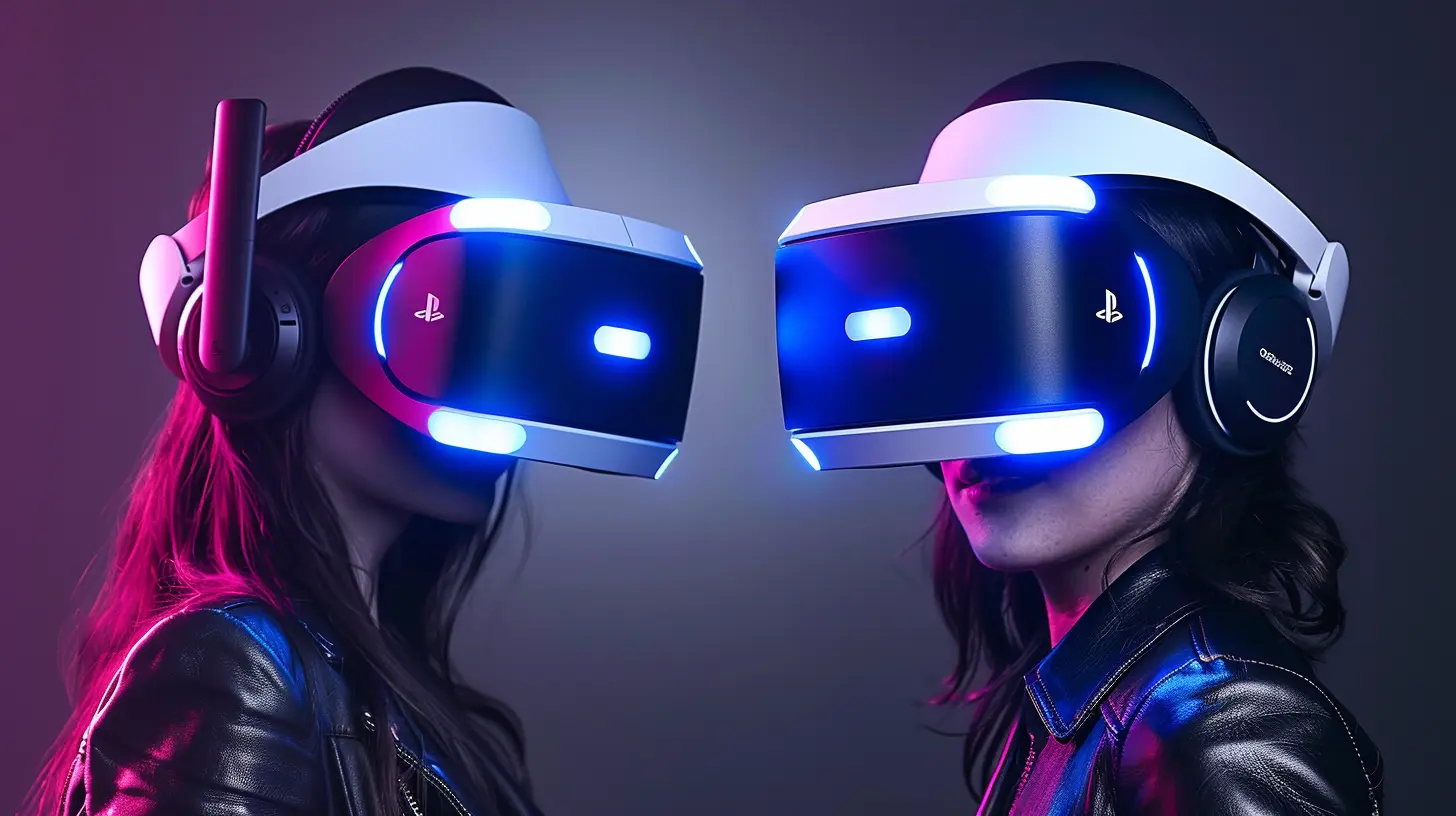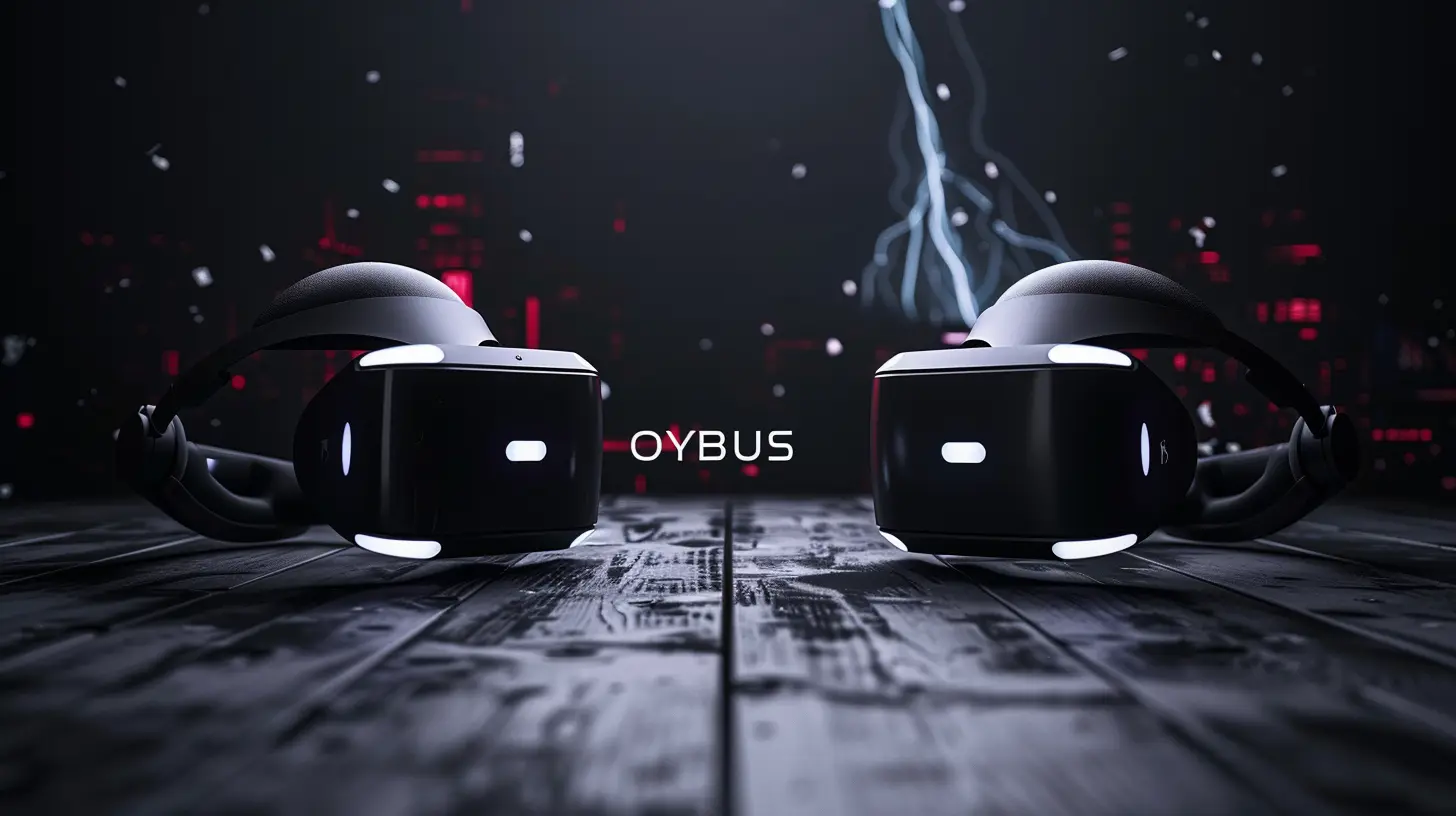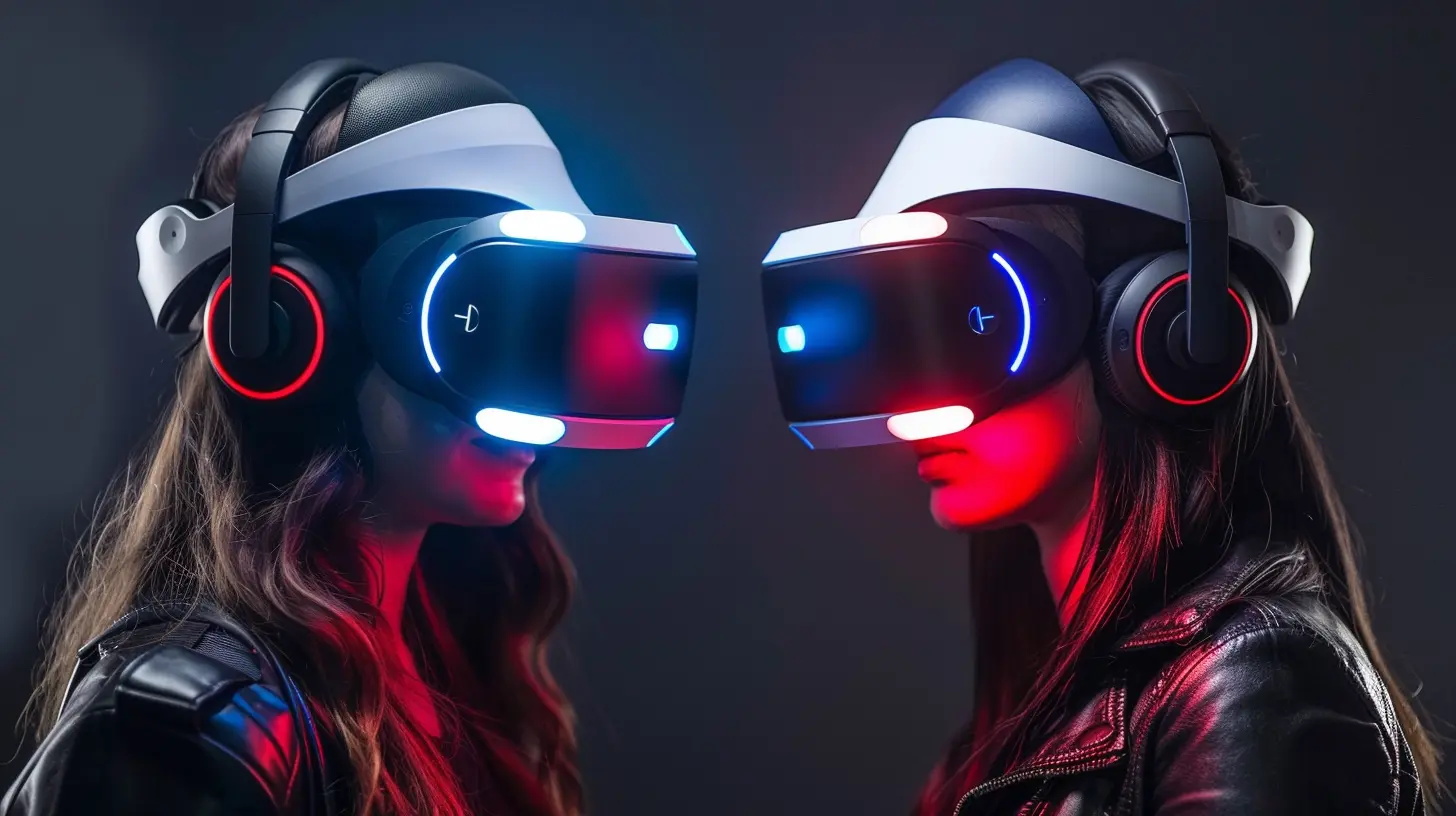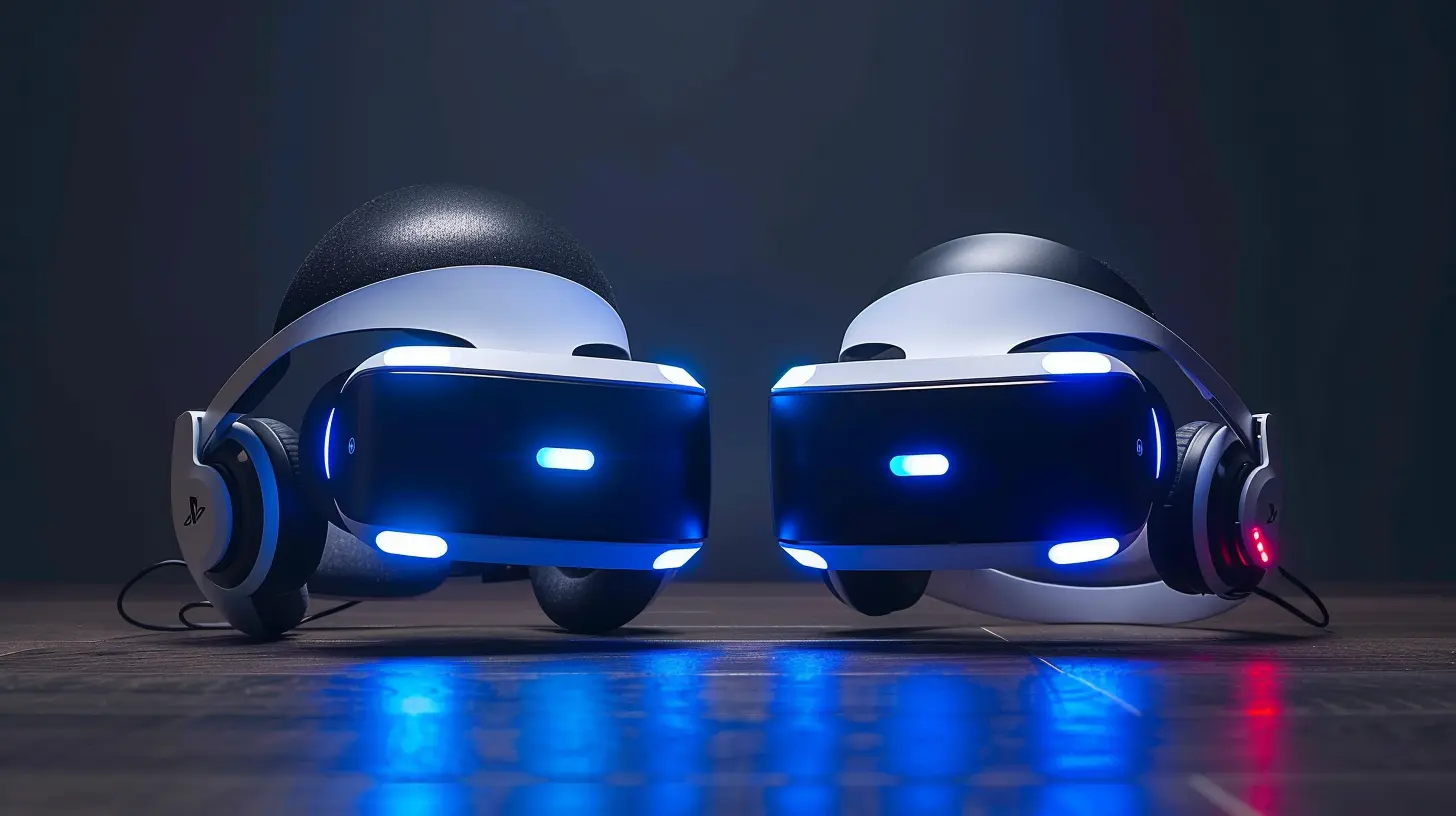Oculus Quest vs. PlayStation VR: Best VR Headset for Gamers
23 September 2025
Alright fellow gamers, let’s talk about a topic that every virtual reality enthusiast wrestles with — Oculus Quest vs. PlayStation VR. If you’ve been teetering on the edge, wondering which VR headset deserves your hard-earned cash, you're definitely not alone. Both systems offer immersive gaming experiences, but they cater to different kinds of players. So, let’s break it all down in plain language — no tech mumbo jumbo unless it’s absolutely necessary.
By the end of this deep dive, you’ll know exactly which headset is the better fit for your gaming style, budget, and future VR dreams.
🎮 A Quick Snapshot: Oculus Quest vs. PSVR
Before we go into the nitty-gritty, here’s a quick side-by-side comparison to give you the lay of the land:| Feature | Oculus Quest 2 | PlayStation VR |
|------------------------|---------------------------------------|----------------------------------------|
| Platform Compatibility | Standalone + PC (via Oculus Link) | PlayStation 4 / 5 |
| Display | Fast-switch LCD (1832x1920 per eye) | OLED (960x1080 per eye) |
| Refresh Rate | 60Hz, 72Hz, 90Hz, 120Hz | 60Hz, 90Hz, 120Hz |
| Tracking | Inside-out (no external sensors) | Outside-in (uses external camera) |
| Controllers | Oculus Touch | PlayStation Move / DualShock 4 |
| Wireless Play | Yes (completely untethered) | No (needs cables + camera setup) |
| Game Library | Oculus Store + PC VR via link | PlayStation Store (PSVR exclusives) |
| Price Range | $299+ | $399+ (not including a PS console) |
🕹️ Ease of Use: Setup and Accessibility
Oculus Quest: Plug-and-Play Freedom
The Oculus Quest 2 is what we call "VR for normies" — in the best way possible. No cables. No sensors. No complicated setup. You power it on, draw your play area, and boom — you’re diving into VR within minutes. It’s 100% wireless and standalone. No console or PC required (although you can connect it to a gaming PC if you're feeling fancy).For folks who want convenience and mobility, this is a game-changer. You could literally strap it on in your living room, then move to your bedroom or even a friend's house and start playing again without missing a beat. It’s basically the Nintendo Switch of the VR world.
PSVR: Needs Some Work
PlayStation VR, on the other hand, is a bit old-school. You’re gonna need a PlayStation 4 (or 5 with an adapter), a PlayStation Camera, and ideally the Move controllers. Setup isn't exactly a nightmare, but it's more of an effort. And once everything’s plugged in, it’s still limited by cables, so don’t go trying to do backflips in Beat Saber, alright?This makes it less ideal for players who want quick and casual VR sessions. But if you're already a part of the PlayStation ecosystem, it might not be a huge deal.
🚨 Verdict: Oculus Quest wins the ease-of-use round, hands down. It's like comparing Uber Eats to cooking a three-course meal.
🖼️ Visuals and Immersion: Which Feels More Real?
Oculus Quest: Sharp, Clean, and Fluid
The Quest 2 sports a slick display with 1832x1920 resolution per eye — that’s some serious clarity. Text is crisp, colors pop decently, and the overall sharpness makes a real difference. The refresh rate goes up to 120Hz (through updates), which gives you smoother motion and less VR sickness. Not to mention, the inside-out tracking is pretty accurate for most games.Here’s something important: even though it’s wireless, there’s hardly any compromise in immersion. Especially for standalone games like Beat Saber, Superhot VR, or The Walking Dead: Saints & Sinners. Plus, it supports PC VR if you want to flex high-end graphics.
PSVR: Surprisingly Good, But Aging
Now, don’t count PSVR out just yet. Despite being released back in 2016, it still holds up surprisingly well. The OLED screen gives you better contrast and deeper blacks, which makes horror and space games feel extra immersive. However, the lower resolution (960x1080 per eye) and external camera tracking can show their age, especially in fast-paced games.Sometimes, the image can feel a bit fuzzy or pixelated, especially if you’re used to newer tech. But for certain exclusive titles, it still delivers emotional depth and visual punch.
🎯 Verdict: Oculus Quest wins again — but PSVR still earns kudos for its OLED screen and ambiance.
🧠 Tracking and Hand Controllers: Who’s More Accurate?
Oculus Touch: Natural & Intuitive
The Oculus Touch controllers are probably the best in the VR business right now. They feel like extensions of your hands. Every gesture, grab, and swing feels intuitive. The inside-out tracking simply works — no need to set up external sensors. You wanna paint in VR? Throw a punch? Fire an arrow? It tracks your movement smoothly and with minimal lag.PlayStation Move Controllers: A Little Clunky
The PS Move controllers are... a bit like using Wii remotes in 2024. They’ve got the job done for years, but they’re just not built for modern VR. Tracking is done using a light sensor and camera, which can get glitchy if the lighting isn’t right or if your hands move out of the camera's line of sight.Some games, especially PSVR exclusives like Moss and Astro Bot, are designed around these limitations and still feel magical. But overall? Time for an upgrade, Sony.
🥊 Verdict: Oculus wins again. It’s like playing Guitar Hero with a real guitar vs. playing it with a broomstick.
🛒 Game Libraries: Who's Got the Goods?
Oculus: A Healthy Mix of Standalone and PC VR Games
Oculus brings a lot to the table, even as a standalone headset. From action-packed shooters to chill puzzle games and fitness apps, the Oculus Store is stacked. And if you have a gaming PC? You can use Oculus Link or Air Link to access the full PC VR library, including SteamVR titles like Half-Life: Alyx.Basically, you’ve got options — lots of 'em.
PSVR: Exclusive Bangers, Limited Flexibility
One word: exclusives. PSVR has some gems you won't find elsewhere: Resident Evil 7, Blood & Truth, and Astro Bot Rescue Mission being the standouts. These are full-blown, story-driven games with excellent production value. However, outside of Sony's exclusives, the catalog thins out a bit compared to Oculus.Also, because it ties to the PlayStation console, you can’t use it for PC VR games. That’s a hard limit.
🎮 Verdict: Oculus has more range and flexibility, but PSVR has a few unforgettable killer apps.
🧩 Comfort and Design: Which One Feels Better on Your Face?
Oculus Quest: Light but Not Perfect
The Quest 2 is light, especially for a standalone unit packed with tech. But here’s the catch — the default strap kinda sucks. It’s front-heavy and can get uncomfortable after a while. Luckily, there are strap upgrades that fix this problem (for a price). Once modded, it’s a very comfy fit.Also, there's no need for headphones — the built-in audio is surprisingly solid for casual play.
PSVR: Surprisingly Comfortable
Give credit where credit’s due — the PSVR’s halo strap design is super comfy. The headset balances well on your head and leaves room around your eyes and nose. Long play sessions? Not a problem. It’s one of the more comfortable designs even years after release.🎧 Verdict: PSVR takes this one. It’s like sliding into a well-worn pair of sneakers.
🤑 Cost and Value: Budget vs. Experience
Oculus Quest: Great Bang for Your Buck
Starting at $299, the Quest 2 delivers a standalone VR experience and a potential PC VR headset — all in one. That’s a killer deal. You don’t need external accessories unless you want them, and most games are reasonably priced.However, you need a Facebook (now Meta) account to use it. That might be a turn-off for some users concerned about privacy.
PSVR: More Hidden Costs
The PSVR itself costs around $399, but you also need a PlayStation 4/5, camera, and either DualShock 4 or Move controllers to get the full experience. So unless you already own a PlayStation setup, the costs add up quickly.💸 Verdict: Oculus Quest offers more value out of the box — less nickel-and-diming.
🛠️ Future-Proofing and Upgrades
Oculus Quest: Constant Updates, New Features
Meta constantly pushes updates — like wireless PC VR support, hand tracking, and higher refresh rates. It’s evolving. And with the Quest 3 and other Meta devices on the horizon, the ecosystem isn’t slowing down anytime soon.PSVR: End of the Road?
PSVR2 is coming (or maybe already here by the time you're reading this), which makes the original PSVR feel outdated. Sony is shifting its focus, and new PSVR titles are drying up. If you're investing now, you’re probably better off waiting for the PSVR2.⏳ Verdict: Oculus is the safer long-term bet.
So, Which VR Headset Is Better for Gamers?
Well, it depends. (Classic answer, right?) But seriously:- If you want wireless freedom, versatility, and a growing ecosystem of games — especially if you don't have a console — the Oculus Quest 2 is the ultimate bang-for-your-buck.
- If you're already deep in the PlayStation ecosystem and crave exclusive titles with cinematic flair, the PSVR is still a worthwhile option — but it's showing its age.
Here’s a simple metaphor: Oculus Quest is a smart electric car with all the bells and whistles. PSVR is a classic muscle car — still fun, still powerful, but clearly not the future.
So, what do you value more in your VR ride: future-ready tech or classic charm?
all images in this post were generated using AI tools
Category:
Gadget ComparisonsAuthor:

Gabriel Sullivan
Discussion
rate this article
1 comments
Bennett McCarthy
Battle of the VR Titans—game on!
October 4, 2025 at 3:09 AM

Gabriel Sullivan
Thanks! Excited to see which headset comes out on top!

